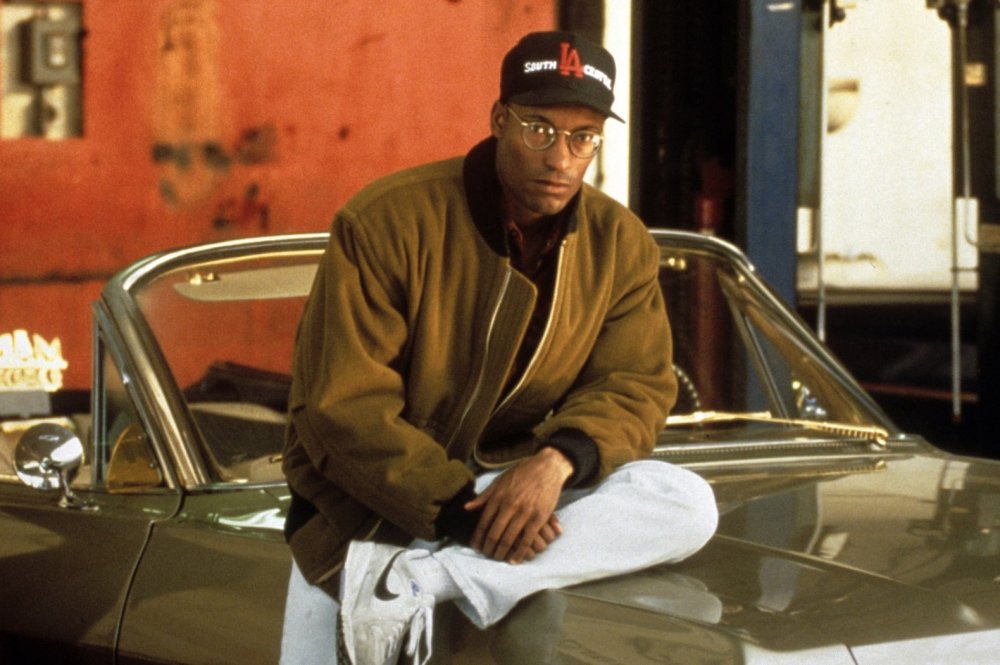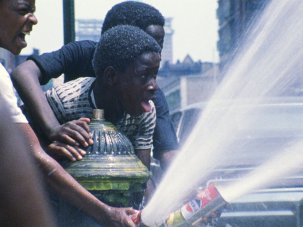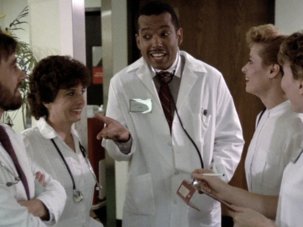I first met John Singleton in 1990 at a restaurant on the Sunset Strip. A friend in the music business had slipped me his script for Boyz N the Hood (1991) and I was immediately struck by how familiar the characters were. It felt like a 90s version of Richard Wright’s Native Son, but set in South Central Los Angeles with a semi-happy ending. Though the gang life of Los Angeles was foreign to me, the drama of a black teen, his two close friends, his mother and father all felt so real. The choices the three boys had to make between violence and forgiveness, love and anger, really touched my emotions.
At dinner John wore the then-ubiquitous Spike Lee-inspired uniform for young black filmmakers: baseball cap, glasses, goatee and a leather-sleeved jacket embossed with the logo of his production company. It was clear during our conversation that while John was a fan of Spike, he had his own vision. He was a proud LA product and was committed to capturing the particulars of life in his city, a determination that would inform much of his best work.
Aside from meeting John I also knew Laurence Fishburne, who was playing Boyz’s stern father figure Furious Styles. Because I’d met John and knew Laurence I had the pleasure of visiting the production office and the set during the summer of 1990. Quietly I asked Fish how he thought of the rookie director was doing and was happy to hear he was impressed. Despite the inexperienced cast he thought Boyz N the Hood was gonna be good.
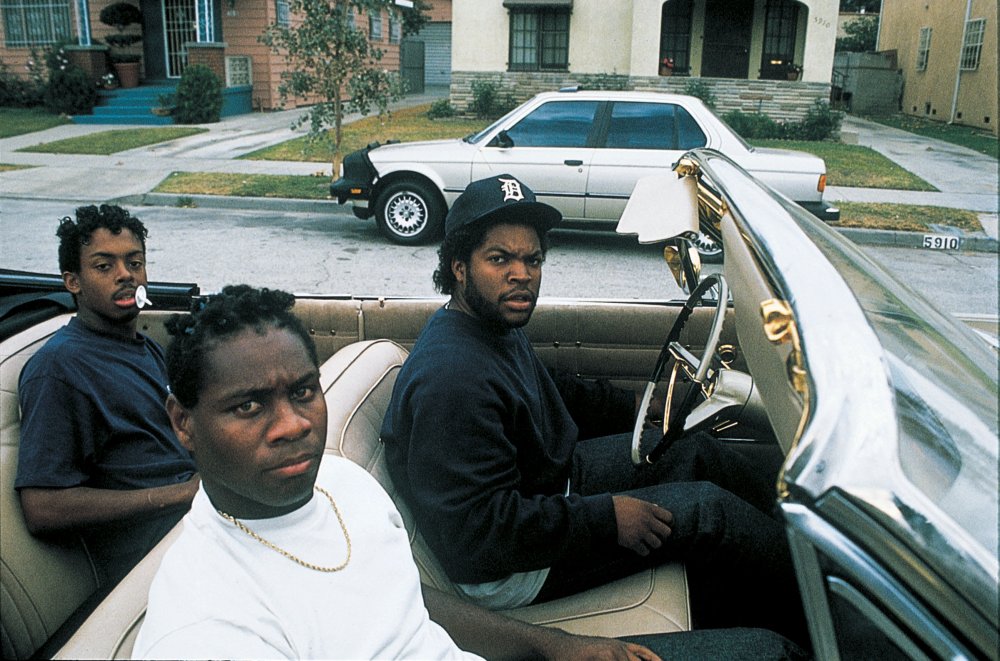
Boyz n the Hood (1991)
Of course Boyz was more than good. In 1991, a year which would set a record for the number of black-written, -directed and/or -produced films theatrically released, John’s film would be a phenomenon. The film earned $57 million at the box office on a $6.5 million budget, garnered nearly universal critical acclaim, and made the 24-year-old novice the youngest person ever nominated for the Best Director Oscar. That inexperienced cast (Ice Cube, Cuba Gooding Jr, Morris Chestnut, Nia Long, Regina King, Angela Bassett) would later be seen as a gold mine of talent, one full of performers who’d go on to be the lead in scores of Hollywood movies and television shows.
Few writer-directors have started their careers with a project as critically and commercially successful as Boyz N the Hood. John never again matched the combination of cultural impact, critical praise and commercial success of Boyz’s big bang.
But that didn’t mean he didn’t keep swinging. He was very ambitious and was determined to fight his way into Hollywood’s corridors of power. He wrangled two of the 90s biggest pop icons (Janet Jackson and Tupac Shakur) to play lovers in his 1993 road movie Poetic Justice. Tapping into his years as a student at USC, John sought to capture the emotional and social complexity of college life with 1995’s Higher Learning, including a subplot involving neo-Nazis that now seems remarkably prescient.
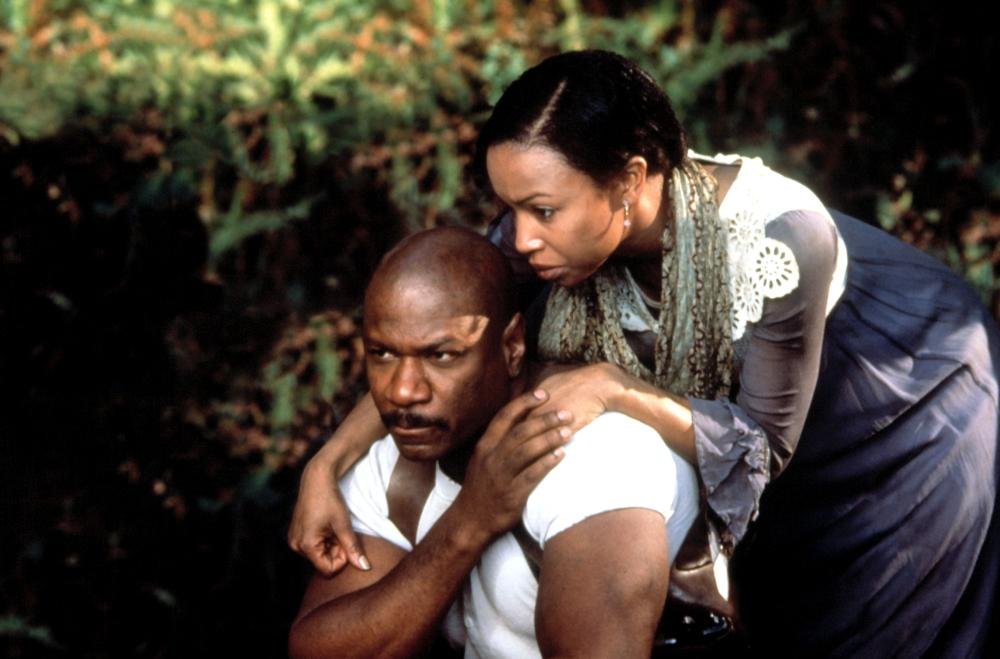
Rosewood (1997)
John’s most ambitious film is probably his least remembered. Rosewood, released in 1997, was based on the story of a white mob overrunning a black town in Florida circa 1923. This was John’s attempt at rewriting history in a manner similar to Quentin Tarantino’s popular 21st-century revisionist features. Unfortunately the film made only $13 million on a budget of $30 million.
For the most part this commercial failure ended the auteur section of his film directing career. With the exception of Baby Boy (2001), a return to South Central LA which dealt with a young man’s struggle to attain maturity, most of his other directing jobs would be studio features – Shaft (2000), 2 Fast 2 Furious (2003), Four Brothers (2005), Abduction (2011) – that he fought to invest with his personality despite the scripts all being deeply formulaic.
Remember the Time
Through John is rightfully associated with hip hop because of Boyz and his casting of MCs as actors, his most important music project was a big pop video for Michael Jackson’s Remember the Time. By contrast with Hollywood’s traditional representation of Egypt as a place of white people with British accents, John got Eddie Murphy to play a Emperor and Iman an Empress, and supervised a deeply Afrocentric take on a groove-based love song. It was culturally quite a potent message.
As a producer John was a big supporter of white director Craig Brewer, helping his 2005 pimp-turned-rapper film Hustle & Flow get financed and lead Terrence Howard an Best Actor Oscar nomination.
Just as John was a key part of the 1990s black film movement, he has also been a big part of the current African-American media explosion. He directed an episode of the critically acclaimed series The People v. O. J. Simpson: American Crime Story (2016), and was a co-creator/executive producer of Snowfall (2017–), a FX series about how the crack epidemic overwhelmed his old South Central hood in the 1980s. In a sense Snowfall is a prequel to Boyz, setting up the tough, drug-ridden streets the teenagers in his debut film would have to survive.
Snowfall makes a nice bookend to John’s career but the truth is he died, aged 51, way too young with too much more to do. Still, I think back to the night I met him, sitting across from a young man full of ideas and optimism, and it makes me smile. He did what he set out to do. He made his mark.
John Singleton talks Rosewood, via the Television Academy Foundation and A.M.P.A.S.
-
The Digital Edition and Archive quick link
Log in here to your digital edition and archive subscription, take a look at the packages on offer and buy a subscription.




